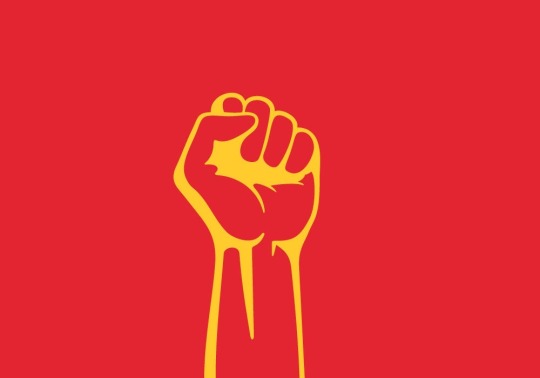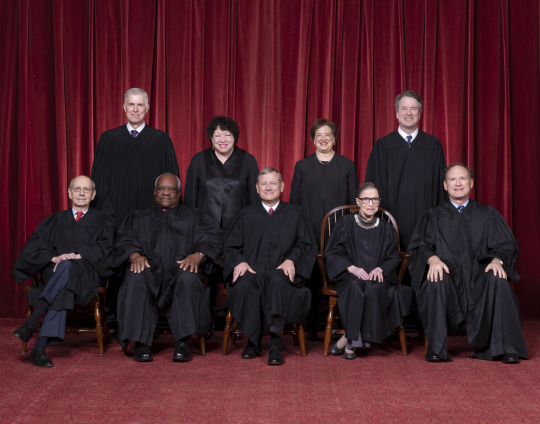Independent Articles with Libertarian opinions; enjoy.
Don't wanna be here? Send us removal request.
Text
Libertarian “Socialism” Doesn’t Exist

Noam Chomsky is a linguist, author, philosopher, cognitive scientist, historian, social critic, and political activist. He is known for his title as “the father of modern linguistics”, his founding of the field of cognitive science, and his published works on various linguistics, war, mass media, and political topics. Despite his impressive history and the legacy he imprinted on modern linguistics, Chomsky’s alignment as a “Libertarian Socialist” not only discredits his political standings amongst Liberty-minded individuals, but it also misrepresents the party’s platform of Laissez-faire capitalism and stout abhorrence to interventionist methods of a centralized government. It’s practically a slap in the face to Libertarians and scholars who praise the man’s ingenuity. But don’t take my word for it, let’s really discover why “Libertarian Socialism” is an oxymoron.
Socialism is a political theory developed by the late Prussian philosopher Karl Marx. The idea of socialism advocates for “the means of production, distribution, and exchange to be owned or regulated by the community as a whole”. In Marxist theory, socialism is defined as the transitional phase between the “overthrow of capitalism and the realization of Communism”, the latter of which is also a theory developed by Marx. A socialist system would imply that everyone is entitled to a share in the benefit of goods, as long as they pitch in the production of those said goods. Therefore, society as a whole should own or control property for the benefit of its members.
From this perspective, it seems like a genuine system that divides wealth equally and prohibits the mass accumulation of wealth to the much despised 1%. However, upon further speculation, one would realize that the specifics of what “their share” would benefit for the greater society is unclear. Technically, it allows for the centralization of government in order to decide what and where the economic gains of socialism will fund in terms of things like healthcare, housing, education, and much more. Socialism violates basic civil liberties in the context of “our share” going towards organizations that enforce legislation which harms our beliefs and practices as individuals with different pursuits like religion or various philosophical beliefs. When aligning your beliefs with the Libertarian Party, it’s important to value individuals rather than “herd mentality”, as one values individual beliefs over a majority opinion of varying sizes and groups.
Basically, Libertarians and Socialists cancel each other out rather than join hands in union. Capitalism allows for the collection of individual wealth while Socialism wants everyone to receive a share of wealth no matter how hard one works to get it. Not to mention that the government already spends way too much taxpayer money without Socialist incentive (or with it in terms of Medicare and Social Security), imagine what they would do with complete Socialist gains! Also, think about how centralized the government would become if it relied completely on Socialism; we’d be like China, or North Korea, or some other dictatorship. Our freedom relies on the accumulation of individual wealth.
2 notes
·
View notes
Text

Supreme Court Justice Ruth Bader Ginsburg passed away this past Saturday at her home in Washington, D.C., she was 87. Her legacy in the courts paved a path for the equal rights of women nationwide, a position that reflects political efforts today in the ongoing fight to quell sex-based inequality. Despite the reflection of her liberal positions and points of view in her 27 years on the Supreme Court, a position on the Supreme Court of the United States is a nonpartisan and apolitical affair. An associate of the Supreme Court may lean as a conservative, liberal, or moderate but these strictly refer to the outlook regarding legal matters rather than for political or legislative reasons. However, that doesn’t stop the government from turning a simple appointment of an apolitical judge who’s only intent is to uphold the constitution.
Ginsburg’s passing has managed to once again open the floodgates of political immorality regarding the process of selecting a successor to the Supreme Court. We saw these floodgates open during Kavanaugh’s nomination and succession, and Neil Gorsuch’s before that. Now, on top of the upcoming presidential election, the issue of appointing a brand new associate to the Supreme Court is met with the excuse that it’s “too soon” regarding the POSSIBLE appointment of Joe Biden as president in November; even though his campaign is shit and Democrats are realizing that trying to shape him into “their candidate” isn’t working (A/N: I’ll be honest, I’m damn near WISHING for a second-term of Trump at this point). But amongst the in-fighting of the U.S. government, the truth of the matter is that the appointment of a Supreme Court associate is not a political affair, and pushing for a “liberal” or a “conservative” judge does nothing to change the outcome of the purpose of their job; to uphold the constitution. Period.
It’s because of this that I want Trump to #filltheseat, as they say on Twitter. It will shut the Democrats up; yes, they might bitch and moan for a couple of weeks about the pick, but as we’ve seen with Kavanaugh, they’ll move on once they’ve run out of steam. There’s already enough political bullshit out there regarding the presidential, senatorial, gubernatorial, and whatever else election; a political feud over the appointment of the successor to the Supreme Court is one of the LAST things we need. It’s unnecessary, just another ploy to recruit more people to the duopoly, and another excuse to cause a political divide. I’m no conservative (or liberal), but from what I’ve seen lately from the Democratic Party I can't help but notice how pathetic they’ve become (or have been); Trump, fill the seat.
0 notes
Text
We Need to Open the United States Back Up
The plague of COVID-19 is no small matter; it has cost over 100,000 lives in the U.S. in just three months! Since there is no cure for COVID-19, society has been forced to regress to the centuries-old method of “social distancing”, the practice of maintaining a reasonable physical distance (6 feet; two arms length) from one another. Due to social distancing measures, several businesses have been closed down to alleviate the need to “go out”; but essential businesses such as grocery stores, restaurants, and utilities stores like Home Depot are open so people can get what they need to weather-out this pandemic. But just how effective are the precautions of shutting down businesses in an economy that thrives off of capitalist ventures? According to statistics, they made the pandemic worse.

In just three months, the U.S. GDP tanked a whopping $1.47 trillion due to a combination of stimulus checks, unemployment claims, restocking medical equipment, and small business loans. The U.S. Federal Debt also plays a huge role in funding for those benefits, and actually increased the federal debt by $1.3 trillion in just three months. It may not sound like a lot compared to the $19 trillion in GDP, but because of the government-funded stimulus checks, we can expect the financial whip-lash of taxes to come back and bite us in the rear end. Not to mention that it will only get worse the longer we’re trapped like caged animals in our houses.
The suggestion of opening up the country is risky, but just like social distancing measures, it is possible to minimize the risk of spreading infection under strict sanitary measures. Measures like health screenings for employees, mandatory hand-washing (was in effect before COVID), mandatory mask-wearing in the work-place, gloves when necessary, and other guidelines. People need money to survive, and if the country doesn’t make it, we can’t distribute it; and the consequences are an immediate domino-effect over a period of time. It’s important to stay safe, but it’s also important that we figure out how to work through this, in case it doesn’t go away completely (which it won’t).
1 note
·
View note